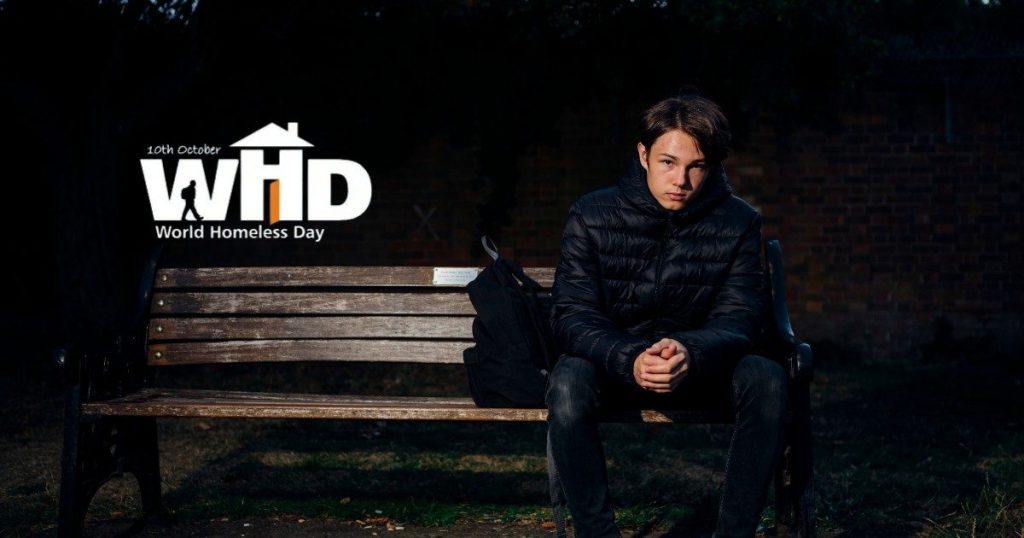When a young person becomes homeless, it’s not just about losing a roof over their head, it’s the unravelling of a foundation that most of us take for granted. For young people, homelessness is not just a housing issue; it’s a crisis that touches every aspect of their development, safety, and future.
A city of young people
Brighton & Hove is home to a significantly younger population than the national average. As of 2023:
- 23% of our city’s population is aged 19–31, compared to just 15% in the South East and 16% in England.
- The difference is most pronounced among 19 to 22-year-olds, who make up 9% of Brighton & Hove’s population, nearly double the regional average.
This concentration of young adults means that any issue affecting young people, like homelessness, has a disproportionately large impact in Brighton & Hove.
The unique vulnerability of young people
Unlike adults, young people are still in the process of forming their identities, building skills, and establishing independence. Homelessness interrupts this critical period of growth. It exposes them to risks that can have lifelong consequences – mental health challenges, poor health and nutrition, substance use, exploitation, violence and disrupted work and or education.
Many young people experiencing homelessness have fled unsafe or unstable home environments – places marked by abuse, neglect, or rejection, particularly for young people who identify as LGBTQ+. Others may have experienced family breakdowns, domestic violence, or immigration-related displacement. The result is a population that is both incredibly resilient and deeply at risk.
According to Centrepoint data collected from local authorities during the financial year 2023/2024 the main causes of youth homelessness were:
- 29,960 (50%) – Family or friends no longer willing or able to accommodate
- 6,210 (10%) – Domestic abuse
- 4,710 (8%) – End of assured shorthold tenancy
- 3,360 (6%) – Required to leave accommodation provided by Home Office as asylum support, having been granted leave to remain status
- 2,960 (5%) – Evicted from supported housing
At Nightstop, we see similar patterns. As per our operational data last year:
- 40.24% of young people cite family relationship breakdown as the primary reason
- 20.94% are evicted from their current tenancy arrangement (the average cost of renting in Brighton & Hove is 35% higher than the UK average)
- 16.4% are asylum seekers or refugees
These figures reveal a stark truth: youth homelessness is often rooted in broken systems and broken relationships, not personal failure.
The daily struggle
Imagine trying to attend college, apply for jobs, or maintain friendships while constantly worrying about where you’ll sleep tonight. That’s the reality for many young people.
They often sofa surf, sleep in unsuitable accommodation or resort to rough sleeping. The instability of their situation makes it nearly impossible to focus on long term goals. Even basic needs like hygiene, nutrition, and safety become daily challenges.
“It’s made me more open to talk to new people and feel more comfortable. In a shop I would feel uncomfortable because I don’t know anyone, but then actually it doesn’t really matter because everyone’s doing their own thing. I don’t know how to explain it properly but it’s helped me relationship wise, like meeting new people. How to kind of read the room, understand surroundings and stuff.” – A 17 year old Nightstop guest
Resilience in the face of adversity
Despite these hardships, many young people show remarkable resilience. They navigate complex systems, advocate for themselves, and find ways to survive.
But resilience should not be a requirement for basic survival.
“Not having to sleep in the library or in a forest. Because without Nightstop that’s what I would’ve done… I would’ve stayed in a study room… and if that didn’t work, I would go sleep in the road or something… That’s nice, I didn’t have to sleep outside or on the floor of a library. Yippee!”
This quote from a young person supported by Nightstop is a powerful reminder: no one should have to be this resourceful just to stay safe.
What they need
Young people experiencing homelessness need more than emergency shelter. They need:
- Trauma-informed care
- Access to education and employment
- Mental health support
- Stable and appropriate housing
They also need adults who believe in them, systems that don’t fail them, and communities that see them not as problems to be solved, but as individuals full of potential.
The Sussex Nightstop safety net
At Nightstop, we provide more than just a bed for the night. We offer safety, flexibility and a non-judgmental space. Young people are placed in the homes of vetted, trained volunteer hosts, where they receive a warm meal, a private room and a listening ear. For many, it’s the first time in a long while that they feel safe, respected, and supported.
This temporary support can be life changing. It gives young people the time and stability they need to explore longer-term housing options, reconnect with services, or simply rest and recover from crisis.
How the community can help
Youth homelessness is not inevitable, it’s preventable. And it’s something we can tackle together.
We offer a range of volunteering opportunities. If you’re interested in volunteering or learning more, please get in touch. We’d love to hear from you.
Take a look at our volunteering opportunities or become a supporter as a business or an individual. Or simply follow us on social media and share our posts.
Every act of kindness helps build a safety net that catches young people before they fall too far. It gives them a stake in our city.
